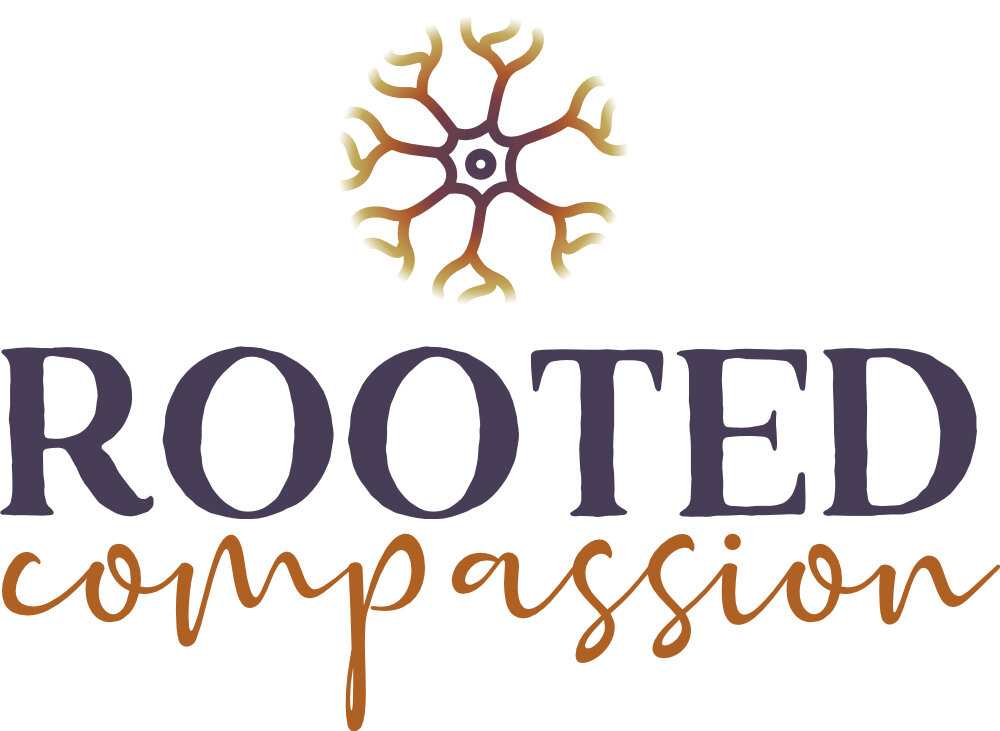COVID Grief and Collective Healing
This month marks three whole years since COVID-19 transformed the world as we once knew it. Do you remember where you were? Who you were with? What were you doing? Thinking? How were you feeling?
Where are you now? Who is around you? How do you feel?
In these last few years, things have shifted—to say the least!
The rippling effects of the pandemic have touched every aspect of life: socially, politically, economically, educationally.
While we were at home, we had time to reckon with the systems we created and exist within, for better and worse. COVID was the catalyst to my own career pivot. I lost more than my identity as a teacher during this period in history.
When I look around today, I still see so much grief.
Whether it is from the loss of time, health, business, schooling, or loved ones, every corner of our universe has been changed forever.
One of my wonderful cohorts, Brenda, recently shared with me a resource: grief.com.
In his Red Table Talk interview on the website, David Kessler, an expert on grief and loss, says, “Grief is natural. Organically, we know what to do.
But our modern society is the one that tells us: ‘Be strong. Get over it. Move on. You shouldn’t feel it. Find closure.’”
David co-wrote the book On Grief & Grieving with psychiatrist, Elisabeth Kübler-Ross, who first identified the five stages of grief—denial, anger, bargaining, depression, and acceptance. As Kessler shares about his personal experiences with death in this short video, I could not help but ponder the collective grief of COVID.
Grief is defined as deep sorrow, trouble or annoyance, an overwhelming emotion, sadness, distress.
Each of these definitions seem fitting for all that we have been through since March of 2020. Kessler echo’s that our pain and suffering is rarely objective, nor linear. Like fingerprints, grief is unique.
“We can’t heal what we don’t feel… When we run from grief, we are in the pain longer,” he explains and caused me to connect back to a favorite Instagram Therapist, @heytiffanyroe’s trademark: FEEL. DEAL. HEAL. (I am a sucker for a good rhyme!)
Both personally and professionally, I am trying to move away from my instinctual (i.e., former educator) problem-solving mode. There is no one right answer. No quick and easy fix. No wrong way to process things. As the sticker on my phone case proclaims: All feelings are OK. (How we deal with them, on the other hand, is for another blog!) The stewards of the healing field agree that progress looks different for everyone. There are many paths. It takes time. Although, knowing you are not alone in the struggle is a central piece to the puzzle.
In his most recent book, David Kessler identifies a sixth stage of grief—meaning. He argues that finding meaning can help shape grief into a more peaceful and hopeful experience.
In what way have you found meaning throughout the pandemic?
While we navigate through this month of March and reflect on years past, we are reminded that spring is on the horizon. With the change in seasons comes new opportunities for growth. The sun is staying out for longer. In Cincinnati, we are already witnessing some Daffodil sprouts. There is a little part of me who fears the trees won’t bloom. Yet, they eventually and always do. The decomposition of winter aids the nutrition of spring. (I most often find meaning in nature.)
My current call to action is simply one of acknowledgment. We have come far in three years. It is all right to just be right now. Let us take a big, collective, deep breath in together. And, let it go…
References:
Kessler, D. (2022). The Six Elements You Need When You're in Grief. Because Love Never Dies. http://www.grief.com
Daffodils by Charles Deluvio on UpSplash
Jennifer (Jen) Kroell (she/her/hers) is currently a graduate student at Xavier University studying Clinical Mental Health Counseling and is thrilled to be starting her practicum experience at Rooted Compassion. Jen’s professional background is in Special Education, having spent seven years working as an Intervention Specialist and Youth Transition Coordinator in several local public schools. She specializes in working with teenagers but has experience with a variety of young people and their families, all ranging in age, background, interests, needs, and ability levels. Jen’s Education background is what led to her career pivot toward Counseling, as access to mental healthcare is one of the most universal barriers she has witnessed both students and families face.
The Rooted Compassion team is made up of a group of counselors who have a variety of specialties in order to best serve our clients. We recognize that every person has his/her own personal and unique life experiences and that one modality will not work for every client. Listed below is a summary of our counselors’ specialties at Rooted Compassion:
Emotional Freedom Techniques
Grief Counseling
Somatic Focused Counseling
EMDR
Cognitive Behavioral Therapy
Dialectical Behavior Therapy
Mindfulness-Based Practices
Trauma Responsive Care Techniques
Acceptance and Commitment Therapy
Drama Therapy/Expressive Arts
If you are interested in learning more about what Rooted Compassion is all about, please contact us today, look through our website, or find us on Instagram and Facebook.
Rooted Compassion Counseling is Ohio’s leading practice for trauma therapy through the lens of the nervous system. Our focus is to walk alongside clients as they heal from depression, anxiety, trauma, grief and/or loss. If you or someone you know are seeking to explore and build an inner sense of calm and safety, please contact us today. We would love to help you to find a counselor and counseling techniques that will guide you on your mental health journey to healing.



